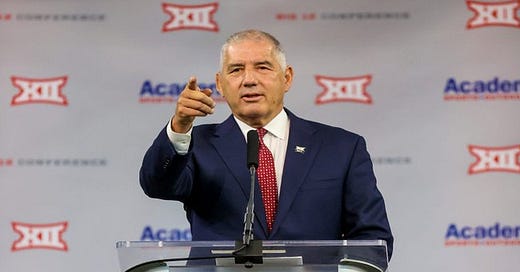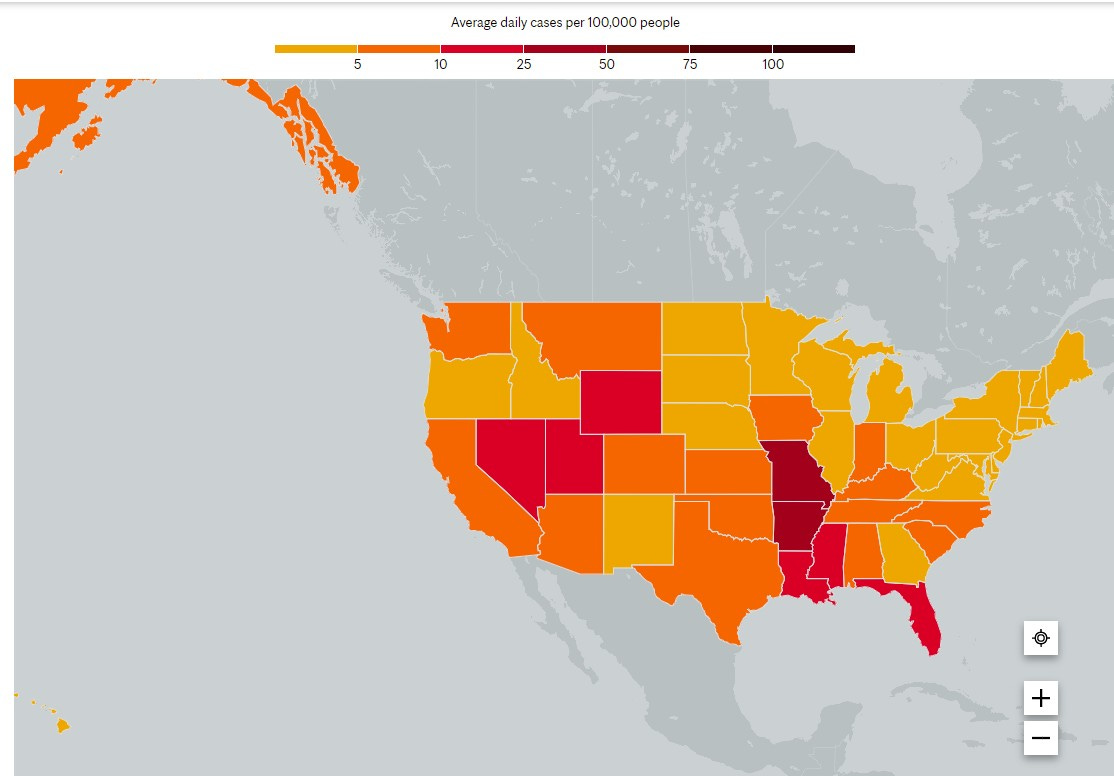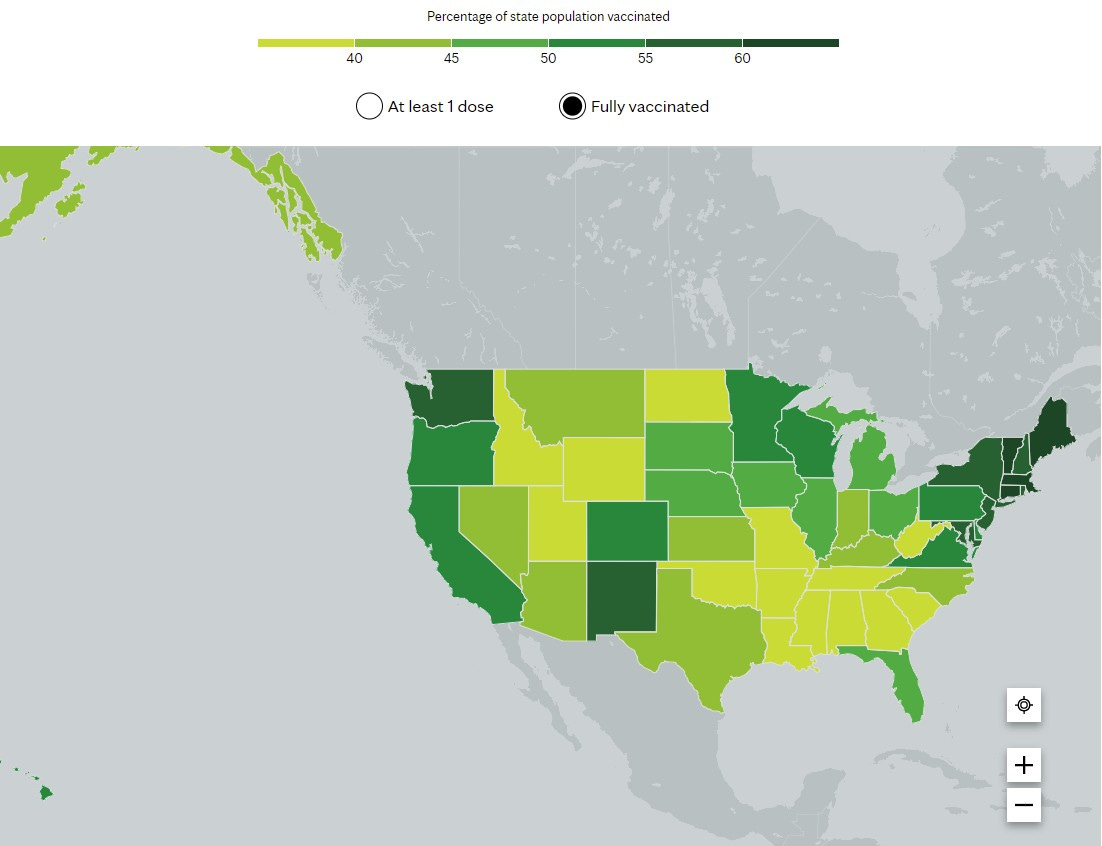Media Days Signal Normalcy, But COVID-19 Threat Remains for College Football
By Wendell Barnhouse
ARLINGTON, Texas – College football media days are the annual signposts that signal the season is weeks away. While the major conferences stage dog and pony shows that promote their brand and feature coaches and players peppered with questions that eventually numb everyone’s brains.
A year ago, there were no media days and there was doubt there would even be a season. COVID-19 canceled the NCAA Tournament and last July the country was masked up and locked down, waiting for science to ride to the rescue.
The Big 12 Conference kicked off the media days circuit with two days of interviews that wrapped up Thursday at AT&T Stadium. No masks were in sight. The assumption was the attendees had availed themselves of the needle pricks that deliver the magic potions. Coaches even said (honestly, maybe?) that they were “happy to see everybody” and have “face-to-face conversations.”
In a you-can’t-make-this-up occurrence, Kansas and first-year coach Lance Leipold and two players had to Zoom in; their private jet was grounded by weather Thursday morning. Hey, it’s only Kansas; who cares? But if you understand that shit happens and life sometimes throws unhittable breaking balls, there was an ominous hint to one of 10 teams unable to make a Big Event.
The pandemic has somewhat disappeared from the forefront and most people are embracing the return of “normal.” But there’s also one cable news network that is relentlessly hyping anti-vaccination lies and the Delta variant is proving that COVID-19 isn’t done with infecting the populace. The virulent strain is a daily staple of the news cycle, plus many of the states with low vaccination rates are in Southeastern Conference country.
The 2021 season isn’t in jeopardy, but don’t be surprised if there are games impacted by positive tests, contact tracing and/or sidelined players.
Commissioner Bob Bowlsby’s “state of the conference” remarks Wednesday made it clear that the diligence and vigilance required last season must remain in place.
"I don't know that I've ever introduced a topic that was less warmly received than the revisitation of protocols," he said, referring to a recent teleconference with the league’s athletic directors. "With the Delta variant, there are good reasons we need to be vigilant. Yeah, we wish we were done with it. But we're probably not quite done with it.
“There’s still going to be a fair amount of testing. We had a lot of surprises and disappointments during the last year, but ultimately I think self-discipline became the coin of the realm.”
Oklahoma coach Lincoln Riley, whose team played only eight regular-season games last season because its game with West Virginia was postponed and then canceled because of the Mountaineers’ COVID issues, was blunt in assessing Sooners who aren’t vaccinated.
“It's no different than if you've got a player that has an injury history,” he said. “That's going to factor in your mind, like is he going to be available, or is he not? This is the same thing. To be honest, if I've got a player that's vaccinated that I know doesn't have to get tested every single week and I got a player that's not — I mean I'm human. That may not be the politically correct thing to say, but do you think I'm not gonna factor that in? Of course I am."
Bowlsby was equally blunt:
“We are certainly, as we go forward, encouraging student-athletes to get vaccinated, and in doing that, to minimize the impact that the Delta variant will have on our activities,” he said. “Frankly, anyone not getting vaccinated is taking unnecessary and unwarranted risks. And that’s not just student-athletes — that’s anybody in our society.”
College athletes aren’t immune to the misinformation (tracking chips, it makes you sterile) regarding the vaccine plus political and religious beliefs along with a concern the vaccine was developed too quickly. While some universities are mandating that students must be vaccinated before returning to campus this fall, it is far from a one size fits all solution. A number of football players declined to get vaccinated for fear a negative reaction would sideline them during spring practice.
College football coaches hate not being in control. They can’t mandate that their players get inoculated. All they can do is provide education and advice.
“I think our team has been well-versed,” West Virginia coach Neal Brown said. “It’s an individual decision. I can speak from personal experience. I’ve been vaccinated. My wife was vaccinated, 13-year-old daughter, my parents, my wife’s parents. So, to share personal experience, but as far as advice, that comes from our medical community.”
“It’s not my job to tell ‘em to do it, make ‘em do it,” Texas Tech coach Matt Wells said Thursday. “I can tell ‘em about my experience – I had COVID and it kicked my butt for about eight days. It’s an individual choice. I think it’s real and obvious that we’re not out of the woods.”
Last season’s schedules were adjusted to allow for disruptions because of the virus. That’s not the case this season. Kansas State athletic director Gene Taylor said that the Big 12, with just one open week built into teams’ schedules, probably won’t allow for postponed games. If a team has a virus outbreak that prevents it from competing, the game will be a forfeit.
At college programs, there will be two camps divided between vaccinated and non-vaccinated. Those in the second group will be subject to the same health protocols faced last season – regular testing, contact-tracing and possible quarantines. Medical studies indicate that those vaccinated have about a 0.007 percent chance to spread COVID-19 - if they contract it.
Following media days, college football’s next signpost will be the start of fall camps, which will open in about two weeks.
For the two-shot vaccine, it requires about six weeks to be fully effective. Time’s a wastin’.
And let’s be crystal clear: If there was a vaccine that would prevent ACL tears, you can bet that every college athlete would wait in line to get that shot.





